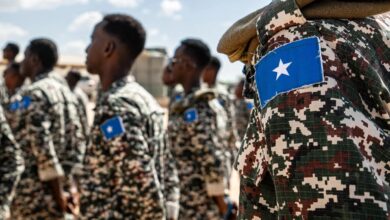Ethiopian Prime Minister Abiy Ahmed on Monday vowed his military operation in the northern Tigray region would be over soon, seeking to placate foreign allies that the country was not on a path to all-out war.
The Nobel Peace Prize winner last week announced an operation in Tigray, after a months-long feud, claiming authorities there had attacked a federal military base, which they deny.
“Concerns that Ethiopia will descend into chaos are unfounded and a result of not understanding our context deeply,” Abiy wrote on Twitter.
“Our rule of law enforcement operation, as a sovereign state with the capacity to manage its own internal affairs, will wrap up soon by ending the prevailing impunity.”
The international community has expressed concern about the potential for a drawn out conflict in Africa’s second-most populous nation, pitting the powerful federal army against the battle-hardened and large military of the Tigray region.
“Ethiopia is grateful for friends expressing their concern. Our rule of law operation is aimed at guaranteeing peace and stability once and for all by bringing perpetrators of instability to justice,” said Abiy.
Abiy has confirmed airstrikes have been launched against military assets in Tigray, and said more were to come, urging civilians to avoid becoming “collateral damage”.
Meanwhile newly appointed army chief Berhanu Jula said federal forces had captured four towns in western Tigray where much of the fighting has reportedly been concentrated.
Reports of dead and wounded soldiers have mounted in neighboring Amhara region.
An AFP tally of numbers given by medical sources and aid workers show over 200 soldiers have been wounded and eight killed.
A total communications blackout makes information from the region hard to verify.
The ruling party in the semi-autonomous state, the Tigray People’s Liberation Front (TPLF), claims it has shot down a warplane, and accuses the army of “bombing” 10 cities in Tigray.
The TPLF dominated politics in Ethiopia for nearly three decades before Abiy came to power in 2018.
Under Abiy, Tigray’s leaders have complained of being unfairly targeted in corruption prosecutions, removed from top positions, and broadly scapegoated for the country’s woes.
Abiy has accused the party which “played a leading role in the systemic abuse of human rights and massive corruption” of seeking to derail his reformist agenda.
The long-running feud escalated after Tigray held its own elections in September, defying Abiy’s government which had decided to postpone national polls due to the coronavirus pandemic.












